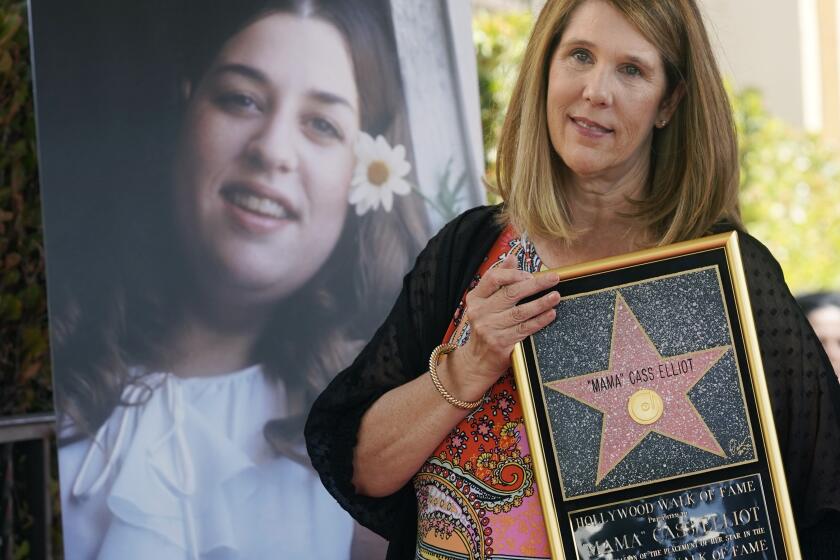Harry Ransom Center acquires Nicholas Ray archives
The Harry Ransom Center of the University of Texas at Austin has acquired the archives of Nicholas Ray, the director of such classic film noirs as 1950’s “In a Lonely Place” and 1952’s “On Dangerous Ground,” and of 1955’s seminal troubled youth melodrama, “Rebel Without a Cause,” which transformed James Dean into a spokesperson for his generation. The archives include scripts, storyboards and correspondence.
“There are about a dozen document boxes,” said Steve Wilson, film curator of the Harry Ransom Center. “We got it earlier this year. We were able to fast-track it into the cataloging system. We are in the final stages now and expect it to be ready for research sometime after Labor Day.”
This year marks Ray’s centenary and is being observed with his widow Susan Ray’s restoration of his 1976 film “We Can’t Go Home Again,” a collaborative effort between Ray and his film students at New York State University Binghamton, set to premiere at the Venice Film Festival; Patrick McGilligan’s new biography, “Nicholas Ray: The Glorious Failure of an American Director”; and the American Cinematheque’s retrospective at the Egyptian and Aero theaters in August. Ray died of lung cancer in 1979 while collaborating with Wim Wenders on “Lightning Over Water,” the 1980 documentary about the last days of his life.
Though not as high profile as the collections at the Academy of Motion Picture Arts and Sciences’ Margaret Herrick Library, the American Film Institute and the UCLA Film and Television Archive, the Harry Ransom Center over the last six decades has landed the archives of such Hollywood luminaries as director King Vidor (“The Big Parade”), “Gone With the Wind” producer David O. Selznick, “Sunset Boulevard” star Gloria Swanson, actor Robert De Niro and screenwriter-director Paul Schrader.
Among the highlights of the Ray collection is his script from the 1945 film “A Tree Grows in Brooklyn,” which was Elia Kazan’s first feature as a director. “He was the dialogue coach,” Wilson said of Ray. “It has Ray’s notes in it. He and Kazan had been friends from the theater world in New York and traveled across the country.”
And “Rebel Without a Cause” historians can revel in about 80 storyboards of the various incarnations of the drama’s finale at Griffith Park.
The only film not featured in the collection is his florid 1954 western, “Johnny Guitar.” Wilson said he doesn’t know why it wasn’t included but speculated that the studio may have kept the material.
Ray’s career started to unravel as he was being idolized in the late 1950s in the pages of Cahiers du Cinema by young critics (and future directors) Francois Truffaut and Jean-Luc Godard for his films about loners and outsiders. Health issues caused him to be fired from 1958’s “Wind Across the Everglades.” He made two big epics in Europe, 1961’s “King of Kings” and 1963’s “55 Days in Peking,” but he was felled by a heart attack during the latter. A heavy drinker and smoker — he would also turn to drugs in the 1960s — Ray would never get another Hollywood feature to direct.
But as his archives illustrate, that doesn’t mean Ray stopped working.
“The heart of the collection is from the last 20 years or so of his life,” Wilson said. “Dennis Hopper got him a job at Binghamton and he kind of fell into teaching. There is a foot-tall stack of papers on how to deal with actors and how to work with actors.”
There are also scripts for several films he hoped to make during his last years, including collaborations with James Jones of “From Here to Eternity” fame and Norman Mailer.
More to Read
The biggest entertainment stories
Get our big stories about Hollywood, film, television, music, arts, culture and more right in your inbox as soon as they publish.
You may occasionally receive promotional content from the Los Angeles Times.







